Zdeněk Štěpánek
Nascimento : 1896-09-22, Tvorsovice, Bohemia, Austria-Hungary [now Czech Republic]
Morte : 1968-06-20

It is 5 May 1945 and the uprising against the hated German occupiers has broken out in Prague. The Czech guards open the gate of the Pankrác prison to allow the prisoners to escape en masse. Many of them are shot dead by the German guards but young Ruda (Jaromír Hanzlík) manages to run away. He is taken care of by one of the Prague fighters, concierge Kytka. Kytka hides him in the flat of the house's owner where only the young maid Karla (Jana Brejchová) is left, ordering her to take care of Ruda.

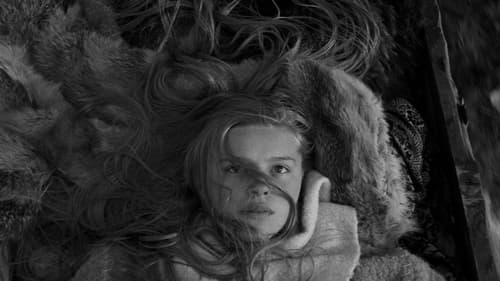
Narrator (voice)
Marketa Lazarova é um épico medieval poderoso, situado no século Xlll. Baseado na obra do escritor Vladislav Vancura, o filme segue a rivalidade entre dois clãs guerreiros, os Kozliks e os Lazars. Lazar segue o cristianismo e é pai da jovem Marketa Lazarová. Quando Lazar recusa-se a ajudar Kozlík numa guerra, Mikolás, o filho de Kozlík, sequetra Marketa, que se preparava para entrar num convento. Mas o amor dos filhos dos rivais, Mikolas Kozlik e Marketa Lazarova, é condenado por ambas as famílias.

Narrator (voice)
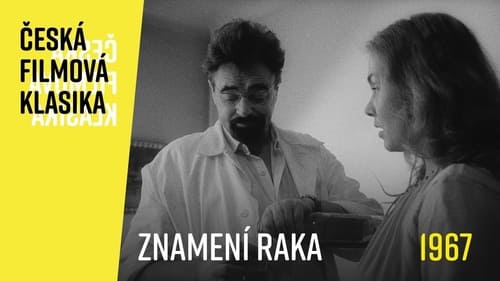
A murder in a hospital run by incompetents.

Nemo (voice)
Primeiro filme de Zeman em formato widescreen marca sua volta ao mundo de Jules Verne. Inspirado pela Art Nouveau e usando colagens de jornais, ele conta a história de dois anos de aventuras de cinco garotos que roubam um dirigível.

Pinkas
Small town policeman Holms suffers from a rather unusual problem: Because of the low crime rate, there is simply not enough to do for him. Deadly bored, he sinks into the depths of depression and requests the help of a psychiatrist. But his imagination is far more effective: In his dreams, he chases gangsters in London. Finally, some small-time crooks find a way to help "their" policeman out of his emotional misery: They steal a memorial from the market square and thus help Holms to a spectacular case.

The work of actors on a stage makes a dreamlike parallelism between artistic immagination and the concreteness of everyday life. Tribute to Prague's Divadlo na zàbradlì, theater that has been a point of reference for Theater of the Absurd in Czechoslovakia in Sixties

Doctor

Generál
At the end of May 1918, released prisoners return to the Rumburk garrison from Russian captivity, hoping that the war is over for them. The only thing they want is to get their withheld ...

děda Vojta Březina

A movie built up of three stories about life in a small Slovak town. The Prosecutor: the district attorney is a jazz orchestra soloist at the same time and that is much disliked by the local provincial society. The Defender: is about a young doctor's relation to his patient, who is open about his reactionary opinions. The Judge: it is only after long years that the old judge realizes that his own marriage is in jeopardy.

děd Vševěd
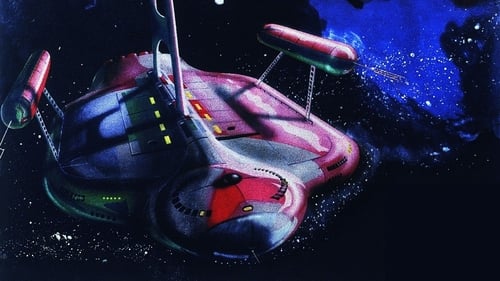
Narrator (voice) (uncredited)
No ano de 2163, um grupo de homens e mulheres deixa a Terra para cumprir uma missão: colonizar um planeta recém-descoberto. No entanto, eles encontrarão grandes problemas no meio do caminho. Encontros com seres alienígenas, pane de sua espaçonave e tensões entre os membros da expedição, situações que podem colocar tudo a perder.

Captain Vladimír Abajev
No ano de 2163, um grupo de homens e mulheres deixa a Terra para cumprir uma missão: colonizar um planeta recém-descoberto. No entanto, eles encontrarão grandes problemas no meio do caminho. Encontros com seres alienígenas, pane de sua espaçonave e tensões entre os membros da expedição, situações que podem colocar tudo a perder.

David Löewenbach
Czechoslovakian Zbynek Brynych directs this psychological drama set in World War II Terezin ghetto. A dark, visual portrayal of the trials and tribulations the Theresienstadt people faced on a daily basis presented in a series of memorable stories. Their hopes and dreams unfold against the perpetual threat of deportation (or worse) by the Nazis. Based on the novel "Night and Hope" by Arnost Lustig.

shipping supplier Hanno Gilberti

Pesek

grandfather Klimes

Narrator (voice)

Self

Dr. Mrázek

director Suda

Mizina

inženýr Jindřich Danda
Concert master Karel Mašek is a drunk, as well as engineer Danda and other regular guests of the pub U Kroců. Mašek returns from the pub in the morning and promises the woman that he will stop drinking. But he failed again, and the orchestra players refuse to play with him. Danda returns home without a bag and goes to Krocs again in the morning, even though he has an important job at work. He has been degraded to subordinate job position, but he refused to admit it at home.

farmer Václav Marunác

master mason Frantisek Vokác

Jan Žižka
After the battle of Sudoměř the Hussite teaching spreads through the whole country and people start leaving their homes to help build the fortification of Tábor. Prague citizens request help against the army of Zikmund. The Hussite army with Jan Žižka in the lead make their way towards Prague. They fortify themselves on the mountain Vítkov and engage in a bloody battle with Zikmund’s huge army.

Commentary (voice)
A spring is hidden in the Iron Mountain but the people of Arzen cannot get to it and they are suffering from thirst.

Jan Žižka z Trocnova
The second part of the revolutionary Hussite trilogy takes place in the years 1419-1420.

Jan Hus / Jan Žižka
Jan Hus is a 1954 Czechoslovak film directed by Otakar Vávra. It is the first part of the "Hussite Revolutionary Trilogy", one of the most famous works of the Czechoslovak director, completed with Jan Žižka (1955) and Proti všem (Against All Odds, 1957).

Dog's Heads (Czech: Psohlavci) is a 1955 Czech drama film directed by Martin Frič, based on the novel of the same name by Alois Jirásek. It was entered into the 1955 Cannes Film Festival.

Commentary (voice)

Commentary (voice)

Prof. Kuffner
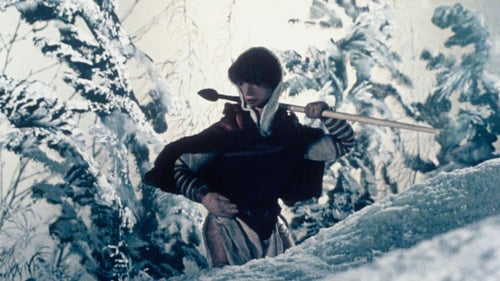
Narrator (voice)
A monumental piece of art bringing the heroes of the ancient Czech myths back to life. The picture consists of seven parts: Cech the Forefather, Bivoj, Libuse, Premysl, Girls War, Horymir, Lucka War.

Hlubina

"The Rally" is based on a communist writer Vaclav Řezáč's well-written novel of the same name

Early Days follows the early life of famous Czech writer Alois Jirásek. Jirásek had already developed his own view of the history of the Czech nation while he was at grammar school in Broumov. When he becomes the supply teach in Litomyšl, he has already written his first book and a number of poems. The local dignitaries await the arrival of the young writer in excited anticipation. Jirásek, however, is sickened by the empty patriotism from the depths of his soul and soon becomes disagreeable to the notables. The district sheriff tries to remove Jirásek from the school and drive him out of town. Unable to do this, the sheriff appoints a pro-Austrian headmaster who attempts to sabotage Jirásek. The students stand behind Jirásek , however, and discontent is not only felt in Litomyšl but throughout Bohemia.

František Ladislav Rieger
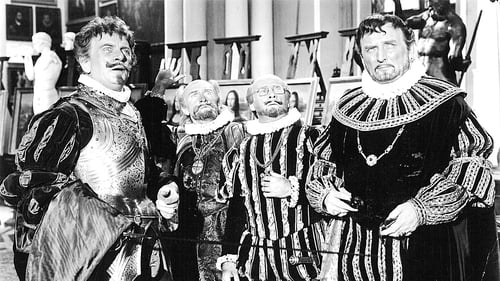
Marshal Russworm
The Emperor's mismanagement of his country is provoking some in his court to plot to overthrow him. He feels successful, at least, when he discovers the legendary Golem, which he believes can protect him and even cure his imaginary illnesses but, when he disappears while on a bender, his kindly baker, who looks just like him, is mistaken for him, and begins to put things in order. However, the conspirators, not to be outdone, determine to bring the Golem back to life to do their bidding.

Commentary (voice)

historik František Palacký
Year of the Revolution 1848

Czechoslovak drama film about soldiers returning from World War II

Story
Shown in Cannes 1946.

Screenplay
Shown in Cannes 1946.

Jan Pička Písecký
Shown in Cannes 1946.

Antonín
Prague, the beginning of the 17th century. Rozina falls in love with Italian glass worker Nikolo, but after returning home, she gets a message that will never come to Prague. She falls for the promise of an older man to marry her, but when Nikolo does return, the tragic fate of Rozina is sealed.

Commentary (voice)

Josef Potužák
Mist on the Moors examines fates of just about a few people. Their stories are outlined in a short space of time and are a symbolic representation of the drama of life, struggle for justice, human cognizance and the healing power of love. One of the most important components of the film is the nature, which ceases to be a mere stage for its plot—it serves almost as an autonomous plot agent. The movie landscape is a precisely defined and localized one. Only the South Bohemian ponds can serve as the right environment for development of such earthy and typically human stories as we encounter in the Mist on the Moors.

MUDr. Svatopluk Slaba

Karel Vajgant

Jan Valenta

Jiří Gregor

John Craigs / muž z neznáma
Venice Film Festival 1940

Martin Balvín
When Vilem appears in the road with an unconscious young woman, it disturbs the peaceful life of three generations of the Balvínova family.

Linn

Screenplay
A morally questionable lord comes to the aid of a working class man who is to be executed for speaking out about thieving rich scoundrels sticking it to the poor.

Story
A morally questionable lord comes to the aid of a working class man who is to be executed for speaking out about thieving rich scoundrels sticking it to the poor.

Mikulas Dacicky of Heslov
A morally questionable lord comes to the aid of a working class man who is to be executed for speaking out about thieving rich scoundrels sticking it to the poor.

Jiří

Self
In this reportage, film professionals offer the viewers a peek behind the scenes at the Barrandov studios. We see how sets are constructed and we find out what sorts of things are stored in the prop department. The friendly commentary describes the journey from camera negatives to a film on the big screen. We learn about film technology and take a glance into film laboratories and editing rooms. The film also presents unique footage from the filming of The White Disease, namely the dramatic scene with five hundred extras in which the Marshal announces his declaration of war.

Jan Výrava
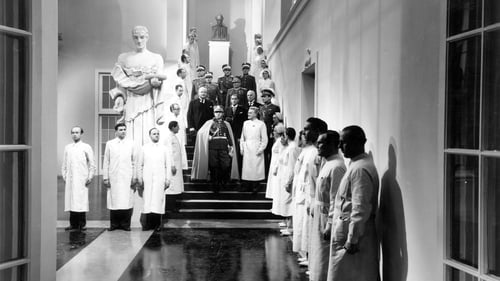
The marshall
The White Plague, a leprosy-like disease, ravages the world during a war. Based on a play by Karel Čapek.

Josef Nevostrý
The doomed love of a city girl caught in the vise of poverty is detailed in Vavra’s fluid, romantic work, one of the most elegant creations of the Czech Modernist era... The film lingers over its characters’ habitats and haunts, finding psychological truths in what each owns or desires, and countering every Hollywood-ready scene of gleaming restaurants and dazzling penthouses with realist moments of employment lines and crammed flats. Vavra’s classical camerawork and aura of romantic defeatism give Virginity a force comparable to the master of this genre, Hollywood’s Frank Borzage. (BAM/PFA)

guvernér státu
One of the few European films of the 30s to criticize the Nazis, even if they couldn't be directly named due to censorship: Gangsters with gray hats stir up trouble in what is obviously the Sudetenland.

JUDr. Josef Polanský

Antonín Havel

komediant Gustav

František Matějka

Petr

Kolář

Saint Václav I, Duke of Bohemia
St. Wenceslas (Czech: Svatý Václav) is a 1930 Czechoslovak historical film about Saint Wenceslas.[2] It was the most expensive Czech film to date,[3] with the largest set constructed in Europe to accommodate an all-star cast of over a hundred, together with 1,000 extras for the lavish battle scenes.

Screenplay
A biographical story about significant Czech dramatist, writer and actor Josef Kajetán Tyl.

Josef Kajetán Tyl
A biographical story about significant Czech dramatist, writer and actor Josef Kajetán Tyl.






























